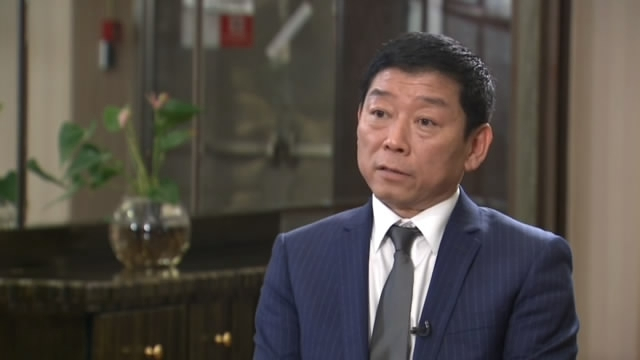
Money Stories
18:03, 29-Apr-2019
Business Inroads: Belt and Road is proving ground for Chinese automaker Great Wall
Updated
07:44, 30-Apr-2019
CGTN Global Business
02:32

The Belt and Road Initiative (BRI) is also
important for Chinese automakers with global ambitions. And Chinese auto manufacturer
Great Wall Motors hopes to improve the image of Chinese cars and Chinese brands
through its expansion along the BRI, according to chairman Wei Jianjun.
The auto project is different from other
projects "where China has an advantage (like power or railways). Automotive
is very competitive and China is on the back foot. We want to improve the image
of Chinese cars, Chinese brands," Wei said.
The chairman thinks that the BRI is all
about sharing and creating win-win relationships. "We have benefited a lot from
the BRI, as local governments would offer to help, and we also contribute to
their economies by paying taxes, hiring and launching charity programs," the
chairman addressed.
The Chinese automaker has brought new
inspiration to the development of China's automobile industry in promoting the BRI.
It has made great progress in overseas markets since China proposed the BRI in
2013, in the meantime, it is also actively engaged in its production and
R&D in countries involved in the BRI.

Wei Jianjun, Chairman of Great Wall Motors. /CGTN Photo
Wei Jianjun, Chairman of Great Wall Motors. /CGTN Photo
Wei revealed that company's first full-process vehicle manufacturing plant: "A 500 million U.S. dollar investment" in Tulskaya Oblast, Eastern Russia, will be officially put into production in May this year. "It will focus on Russia but also reach the broader ASEAN market and the Commonwealth of Independent States, which coordinates with the BRI," Wei added.
"It is very crucial to our globalization strategy under the BRI," he said, considering it as a significant step to enhance the global influence of Chinese auto brands.
"Local production allows us to provide Russian car buyers with all-round maintenance and quicker after service, and also cars that better fit their driving habits and the local weather. For example, we may use high-anticorrosive parts and paint for their frequent snowy conditions. That way our cars could gain popularity among overseas customers," he explained.
And Great Wall Motors will operate with two models in different overseas markets in the future. One is to "ship cars from China's free trade zones and set up only marketing networks over there to lift the brand image and provide services," for big and mature overseas markets.
"The second is the so-called CKD model – we ship the Completely Knock Down units to those rather small markets with high tariffs, and assemble in local factories, like what we did with Russia and many other Belt and Road countries," Wei further explained.
"We already survived fierce domestic competition with high-quality products, now we need our brand value to hold a share of the global market," Wei said, adding that the brand value would be more crucial in global competition.
"Companies must focus on long-term returns, which is brand value – one thing that Chinese businesses lack the most. Long-term thinking helps lay the foundation for the future, where we can create more value for our investors," the chairman told CGTN.

SITEMAP
Copyright © 2018 CGTN. Beijing ICP prepared NO.16065310-3
Copyright © 2018 CGTN. Beijing ICP prepared NO.16065310-3